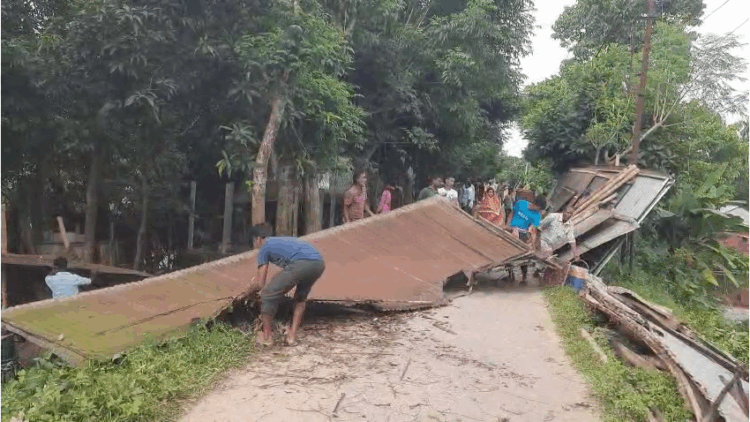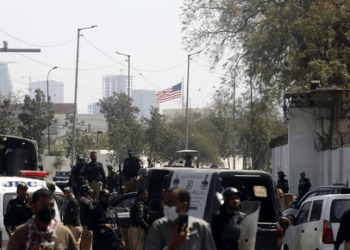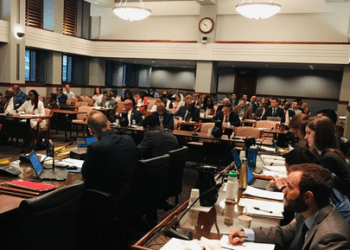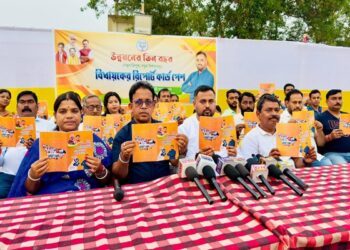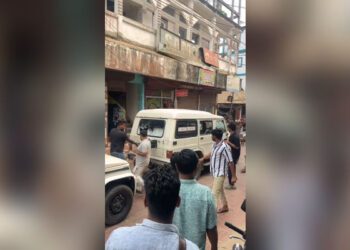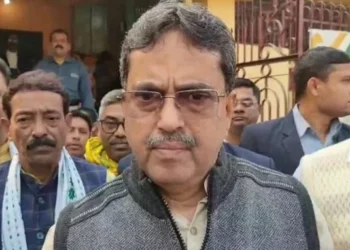Agartala, August 30 — In a major eviction drive launched early Saturday morning, the municipal corporation cleared a temporary colony of 19 families living along the banks of the Howrah River in South Joypur. The operation was conducted by civic officials as part of the state government’s Smart City initiative, which includes strengthening embankments along the river to mitigate flooding risks and upgrade urban infrastructure.
Officials said construction of the embankments had already begun but was stalled midway due to the presence of the informal settlement. The eviction, they claimed, was unavoidable to ensure the continuation of the project, considered crucial for long-term flood management in the city.
While officials defended the drive as necessary for public safety and development, the move has triggered anguish and outrage among the displaced families. Many residents alleged that the administration had earlier assured them of permanent housing but failed to deliver on those promises.
With tears rolling down her cheeks, one woman narrated her plight: “The administration promised us a permanent place to live. We received neither land nor compensation. Today, we are left on the streets with nothing—not even a roof over our heads.”
Another resident echoed the sense of despair, saying, “We don’t own any land or have money to rent a place. We are helpless. Where should our children go now?”
Following the eviction, the affected families have set up makeshift tents on the roadside, braving harsh conditions while appealing for urgent government intervention. With no clarity on rehabilitation or resettlement, the families remain in limbo, uncertain of their future.
Human rights activists and local civil society groups have also begun voicing concern, calling for immediate relief measures. They argue that while development projects are necessary, they should not come at the cost of vulnerable communities being left homeless without rehabilitation.
The displaced families are now urging the state government to provide immediate assistance, including temporary shelters, food, and a clear roadmap for permanent resettlement. For them, the Smart City project represents not progress, but a deepening struggle for survival.
As the embankment work resumes, the fate of the 19 evicted families remains uncertain, underscoring the growing tension between urban development goals and the rights of marginalized communities.


